Dostoevsky’s Demons
Study Dostoevsky's great novel on the nature, logic, and social origins of revolutionary politics.
Sundays | January 9, 16, 23, 30, February 6 & 13
Online Seminar Series
Fyodor Dostoevsky uniquely deduced the political horrors of the twentieth century from the ideological viruses of the nineteenth. His final novel and masterpiece, The Brothers Karamazov (1880), is unsurpassed in its portrayal of the internal conflicts and spiritual strivings of late-modern man and society.
As its titular brothers struggle between faith and doubt, the novel invites readers to reflect on ultimate matters of human freedom, suffering, and the choice between good and evil.
Image Credit: Mikhail Vasilyevich Nesterov, In Russia; The Soul of the People, 1914–1916, The Russian Museum, St. Petersburg, Russia
Jacob Howland on the liberal arts university.
This course takes place via Zoom over six sessions, held on Sundays, from 5 to 7 PM ET. Fellows will receive a $200 stipend contingent upon participation in the course and completion of a brief response paper. All course materials will be provided.
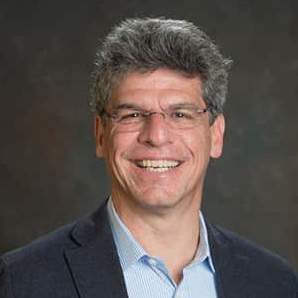
Jacob Howland is a Senior Fellow at the Tikvah Fund. His research focuses on ancient Greek philosophy, history, epic, and tragedy; the Hebrew Bible and the Talmud; Kierkegaard; and literary and philosophical responses to the Holocaust and Soviet totalitarianism. His most recent book is Glaucon’s Fate: History, Myth, and Character in Plato’s Republic.

Jacob Howland is a Senior Fellow at the Tikvah Fund, prior to which he was the McFarlin Professor of Philosophy (emeritus) at the University of Tulsa. His research focuses on ancient Greek philosophy, history, epic, and tragedy; the Hebrew Bible and the Talmud; Kierkegaard; and literary and philosophical responses to the Holocaust and Soviet totalitarianism. His most recent book is Glaucon’s Fate: History, Myth, and Character in Plato’s Republic. His other books include Plato and the Talmud and Kierkegaard and Socrates: A Study in Philosophy and Faith. He earned a B.A. from Swarthmore College and a Ph.D. from Penn State.

Jacob Howland
Jacob Howland is McFarlin Professor of Philosophy Emeritus at the University of Tulsa. He has written about Plato, Aristotle, Xenophon, Kierkegaard, the Talmud, the Holocaust, ideological tyranny, and other subjects. His most recent book is Glaucon’s Fate: History, Myth, and Character in Plato’s Republic.
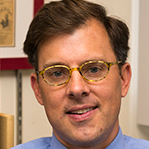
Flagg Taylor
Flagg Taylor is an Associate Professor of Government at Skidmore College. He is editor most recently of The Long Night of the Watchman: Essays by Václav Benda, 1977–1989. He is currently writing a book on Czech dissent in the 1970s and 1980s.

Martha Bayles
Martha Bayles is an Associate Professor of Humanities at Boston College, where she teaches a year-long course titled, “From Homer to Dante” and various senior seminars. Her research centers around popular culture and cultural history. She has previously served as a lecturer at Harvard University and Claremont McKenna College.
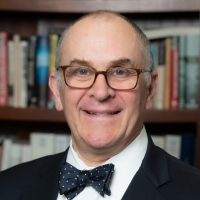
Eliot Cohen
Eliot Cohen is the Robert E. Osgood Professor at the Johns Hopkins University’s School of Advanced International Studies (SAIS) where he has taught since 1990. He served as Dean of SAIS from 2019 to 2021. In addition to public service in the Department of Defense he served as Counselor of the Department of State from 2007 to 2009.

Matthew Continetti
Matthew Continetti is resident fellow at the American Enterprise Institute, Prior to joining AEI, he was Editor in Chief of the Washington Free Beacon. His articles and reviews have appeared in The New York Times, The Wall Street Journal, and The Washington Post.
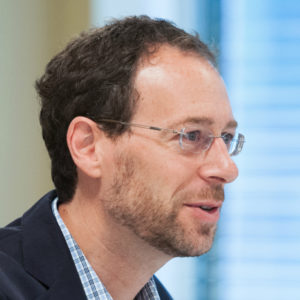
Bryan Garsten
Bryan Garsten is Professor of Political Science at Yale University. He writes on questions about political rhetoric and deliberation, the meaning of representative government, the relationship of politics and religion, and the place of emotions in political life.

Benjamin Storey
Benjamin Storey is Associate Professor of Politics and International Affairs at Furman University. His interests focus on the history of political philosophy. He is currently completing a book entitled The Restless Age: Four French Thinkers on the Quest for Self-Understanding in an Unsettled Modernity.

Jenna Silber Storey
Jenna Silber Storey is Assistant Professor in Politics and International Affairs at Furman University and Executive Director of Furman’s Tocqueville Program. She is the co-author of a book with Benjamin Storey: Why We Are Restless: On the Modern Quest for Contentment (Princeton University Press, 2021). Further information about her work can be found at www.jbstorey.com.
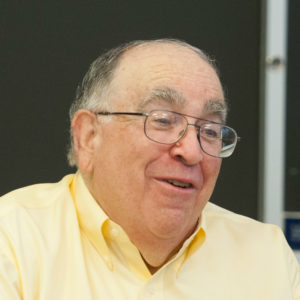
Paul Cantor
Paul Cantor is the Clifton Waller Barrett Professor of English and Comparative Literature at the University of Virginia. He has written on a wide range of subjects, including Shakespeare, Romanticism, Austrian economics, and contemporary popular culture.